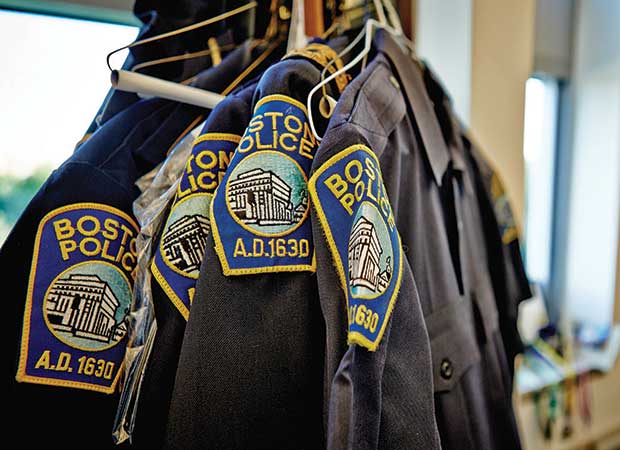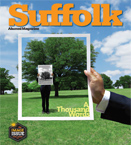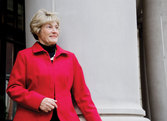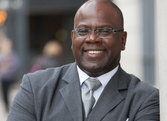
At Their Service
Sawyer Business School offers leadership development to Boston Police.
In September 2010, Boston was stunned by the multiple murders of four people, including a two-year-old boy, in the city’s Mattapan section. Brenda Bond, a Suffolk assistant professor of public administration, was so affected by the crime that she arranged a lunch meeting between Sawyer Business School Dean William J. O’Neill JD ’74 and Boston Police Commissioner Edward Davis H.DPS ’13, whom she has known for 20 years, hoping that Suffolk could in some way offer its resources to the police department. Out of that conversation came the Public Safety Leadership Initiative, a unique collaboration between the Boston Police Department (BPD) and the University designed to hone the skills of public safety executives who operate within a community-policing context. “We felt like that was something where we could really help address a need that they had,” Bond explains. Initially, she fashioned a program from existing graduate courses into a nine-month certificate program for 30 midlevel BPD managers. At the same time, Bond, along with Jodi Detjen, a Suffolk instructor in management and entrepreneurship, and Rick Beinecke, chair of the University’s Institute for Public Service and a professor of Public and Health Administration, also developed a pilot program for eight Boston Police executives that began last March. A month into the program came the Boston Marathon bombings, which, Bond says, had a profound effect on the class. “I can’t express how awesome it’s been to work with them through this process. It was such an opportunity to talk about the leadership successes they saw and the leadership challenges they faced [after the bombings].”
Superintendent Kenneth Fong, a 21-year BPD veteran, says the class “more than met my expectations. I expected basically some conversations, lectures, and a standard college environment, but it turned out to be really good. We identified our strengths as leaders, what our weaknesses are, and how to address them. That was really helpful.” Now that the pilot program is done, Bond is hoping to continue the class with another group of Boston law enforcement executives. “What was interesting about the work we did is it was not solely about the safety challenges they see in the community, but also about their responsibilities and expectations about creating the police department of the future,” she says. “These executives are charged with developing future Boston PD leaders, and a lot of this is about choices, behavior, decision making, habits, and communication. Those are things applicable at any level.”










